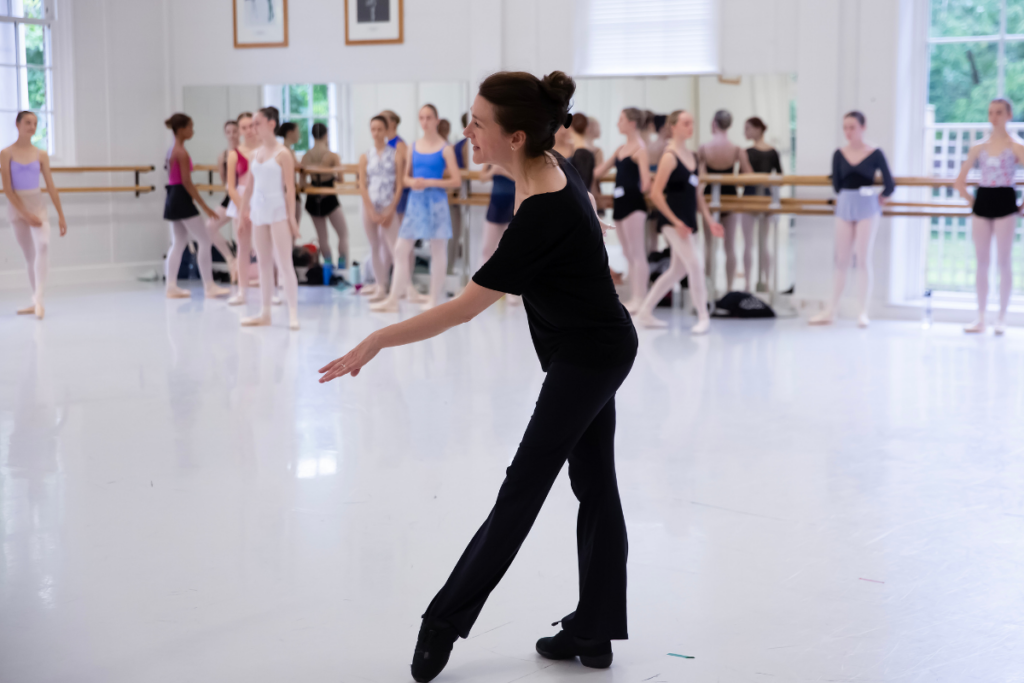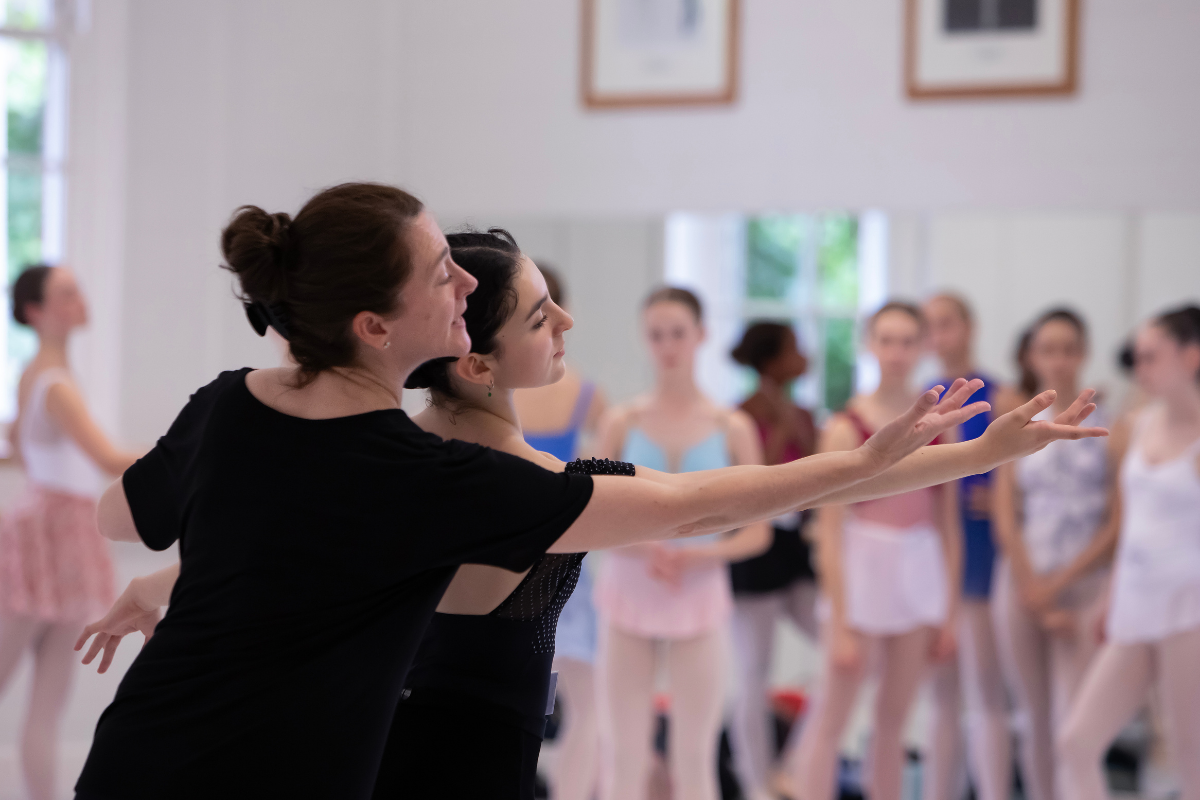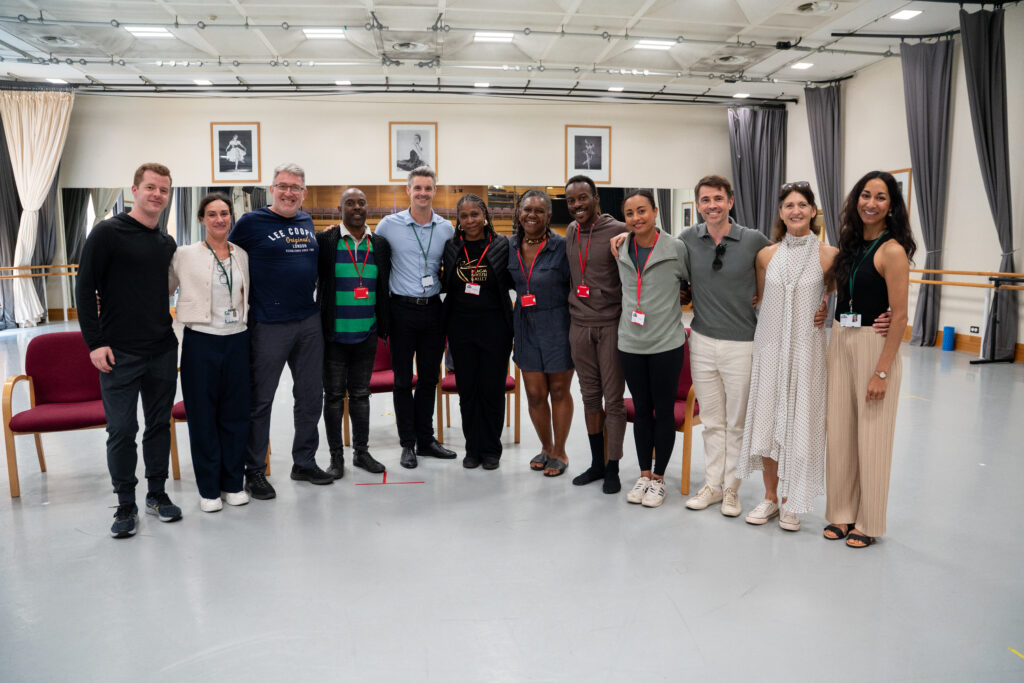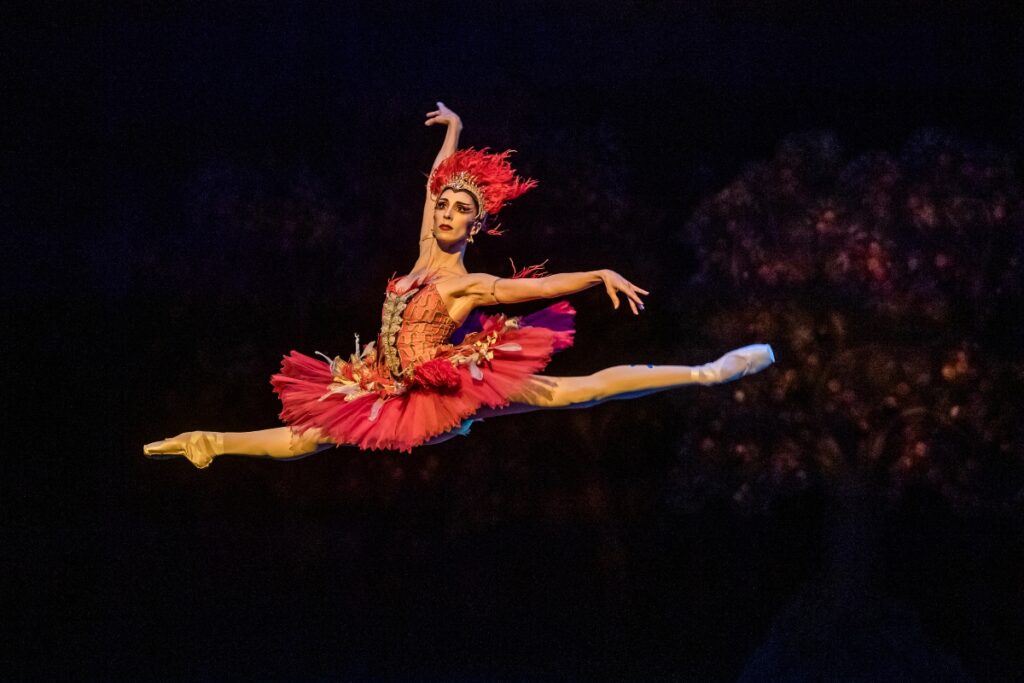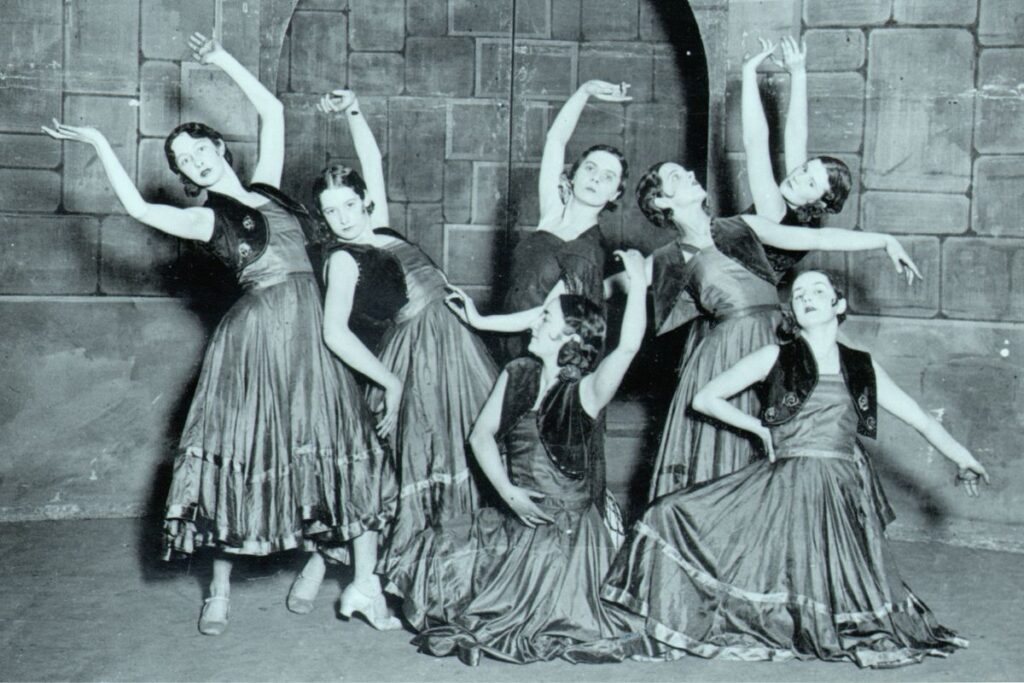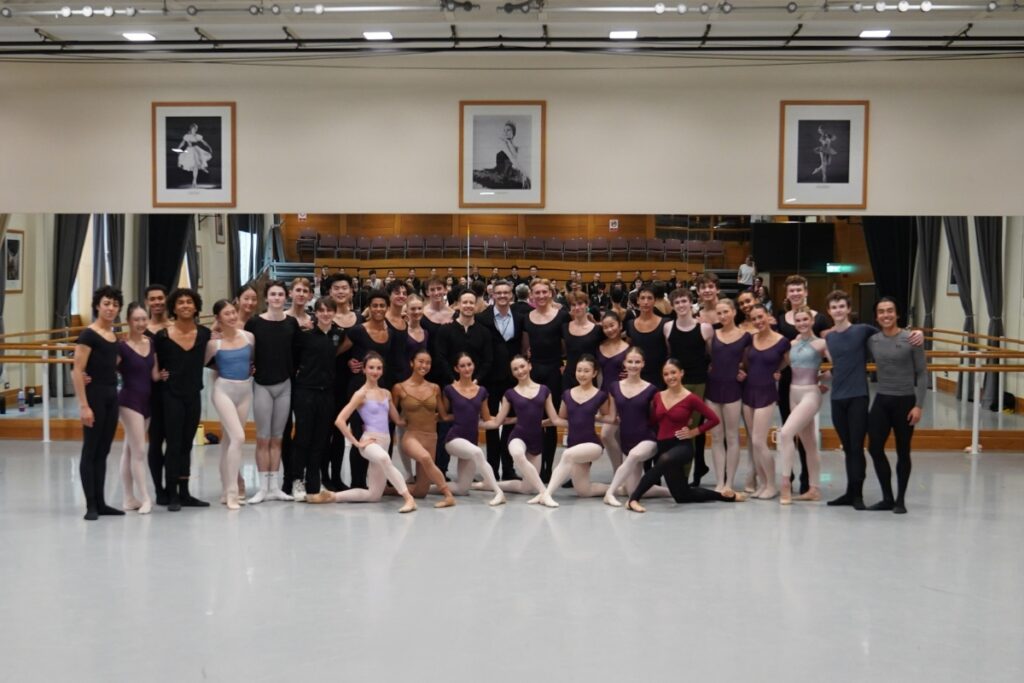Welcoming Larissa Bamber to The Royal Ballet School’s Artistic staff
This year, we welcomed four new ballet teachers to The Royal Ballet School at White Lodge and Upper School.
Alumna Larissa Bamber has joined the School’s White Lodge teaching faculty, bringing a wealth of experience from her professional career as a dancer with The Royal Ballet and as a teacher. Larissa trained at White Lodge and Upper School before joining The Royal Ballet at 18. After performing with the Company for 13 years, she trained as a teacher with the Royal Academy of Dance’s Professional Dancers’ Teaching Diploma (PDTD).
Amidst classes and rehearsals, we spoke with Larissa about her new role and how it feels to be back where her career began:
How do you feel about your new role?
Very excited. I am just delighted to be here after so many years starting as a nervous little 11-year-old. Little did I know then of the path my career would take; it feels like a full circle to be back.
What were you doing before joining the School?
I was Artistic Director of Images Ballet Company at London Studio Centre. I taught the students in their last year of training for a degree programme. I commissioned choreographers to create for the Company and rehearsed and managed the programme and the UK tour. Before that, I worked at vocational ballet schools, including Central School of Ballet and English National Ballet School, where I was the graduate teacher for 13 years.
How did you first start as a dancer? What do you remember about your early experiences with dance training?
I just used to respond to whatever music was going on in the house, whether it was The Archer’s theme music or a Chopin nocturne; I just responded. My mum decided to try out ballet classes, and I went with my older sister; she didn’t enjoy it very much, but I absolutely loved it. Just having the space to move and a pianist to play. I have very happy memories of being a butterfly and dancing the polka for hours around a church hall. The school had a performance once a year at the small local theatre but being tiny myself, I thought it was enormous. The thrill of being on stage and the drama of the curtains; I knew that was my place to be and did not want to leave the stage.
I went all the way through The Royal Ballet School. I was at White Lodge for five years, where I was Head Girl, and then I went to the Upper School and started working with the Company in my first year. I then joined the Company after two years at the Upper School.
Towards the end of my career, I enjoyed encouraging the younger dancers. I was always the one who would offer advice, and I found I really enjoyed that. I felt I had things to say and quite a good way of saying it. If you’re a dancer and you’re new in the Company, it can be very stressful. I hated to see that stress in people, so I would step in and help. For me, teaching was just a natural progression from being a dancer.
What’s the best advice you were given when you were training?
When I was training, it was probably my very first ballet teacher. She said, ‘you’ve just got to love it.’ A dancing career is hard; it has to be you who loves it, not your parents. Because you’ve got to get out of bed when your feet are hurting and you are exhausted. You have to do it because you love it.
What are some of the highlights from your dancing career?
There are too many to mention, but dancing with the most incredible dancers in The Royal Ballet. I shared the stage with [Rudolf] Nureyev when he performed with Sylvie Guillem in her first performance at the Royal Opera House. She was performing Giselle, and just being on the stage and sharing the same air, knowing it was a historic moment, was very exciting.
Being in an environment of creativity with incredible dancers of the generation, [Antoinette] Sibley and [Anthony] Dowell. Being rehearsed by ballet legends Dame Ninette [de Valois], Michael Somes, and Natalia Makarova and working with [Kenneth] MacMillan was a privilege and quite an eye-opener; it felt very special. Also, having the opportunity to perform around the world in wonderful opera houses and theatres and make great friends in the process.
What are some of the highlights from your teaching career?
It’s always a thrill to do the journey with students. When they have graduated, and they’ve found employment, that’s always hugely rewarding. But when they contact you because they’ve got that big role and want you to come and watch, that is so incredible and very special. There’s nothing that can top that.
Outside of your career, what are you particularly proud of?
My family, and especially my two daughters. I am so proud of who they are and what they’ve achieved in their young lives so far. They both learned to dance and decided quite early on it was not for them. But they love watching; they’ve been to the Opera House and Sadler’s Wells and absolutely love it. I value their fresh eyes on a production or particular dancer.
What are you most excited about in your new role at the School?
I love being part of their [the student’s] journey; it’s a joy and a privilege to guide and encourage them. Each year, you think, I can’t possibly have another year group that’s as talented and as lovely as the year group I’ve just had until the next year group comes along, and you invest so much in them. There you are again, absolutely gunning for them.
I’ve taught at a higher age group for some time, so it’s refreshing to go back and see the progression of learning from the beginning of vocational training of classical technique and the understanding of ballet as an art form.
What will you bring to The Royal Ballet School?
I’ve got my experiences as a dancer with The Royal Ballet and 24 years of teaching. Being in different establishments, institutions and schools has also given me a wealth of experiences and an eye across all abilities and levels.
What would you say are things that today’s dancers need to be aware of when they’re starting out? Could you give any advice?
I would always remember what my first teacher said, ‘you’ve got to love it.’ But you also have to be adaptable and be able to change. You should not be fearful of change; change is absolutely inevitable. Just be ready for it, don’t fear change in yourself or how things are done. It’s taken me a lifetime to realise that change is good.

